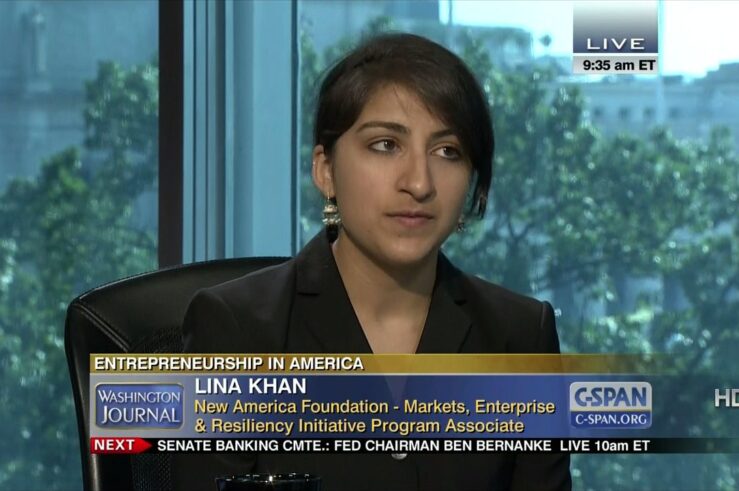Showing archive for: “China”
Your Definitive End-of-Year Global Tech Regulation Wrap-Up: Who’s Doing What, Where, and What to Make of It
As 2023 draws to a close, we wanted to reflect on a year that saw jurisdictions around the world proposing, debating, and (occasionally) enacting digital regulations. Some of these initiatives amended existing ex-post competition laws. Others were more ambitious, contemplating entirely new regulatory regimes from the ground up. With everything going on, it can be ... Your Definitive End-of-Year Global Tech Regulation Wrap-Up: Who’s Doing What, Where, and What to Make of It
Antitrust Policy and National Security Interests
U.S. antitrust policy seeks to promote vigorous marketplace competition in order to enhance consumer welfare. For more than four decades, mainstream antitrust enforcers have taken their cue from the U.S. Supreme Court’s statement in Reiter v. Sonotone (1979) that antitrust is “a consumer welfare prescription.” Recent suggestions (see here and here) by new Biden administration ... Antitrust Policy and National Security Interests
The Internationalization of Due Process, Federal Antitrust Enforcement, and the Rule of Law
The acceptance and implementation of due-process standards confer a variety of welfare benefits on society. As Christopher Yoo, Thomas Fetzer, Shan Jiang, and Yong Huang explain, strong procedural due-process protections promote: (1) compliance with basic norms of impartiality; (2) greater accuracy of decisions; (3) stronger economic growth; (4) increased respect for government; (5) better compliance ... The Internationalization of Due Process, Federal Antitrust Enforcement, and the Rule of Law
How Not to Promote US Innovation
President Joe Biden’s July 2021 executive order set forth a commitment to reinvigorate U.S. innovation and competitiveness. The administration’s efforts to pass the America COMPETES Act would appear to further demonstrate a serious intent to pursue these objectives. Yet several actions taken by federal agencies threaten to undermine the intellectual-property rights and transactional structures that ... How Not to Promote US Innovation
Unpacking the Flawed 2021 Draft USPTO, NIST, & DOJ Policy Statement on Standard-Essential Patents (SEPs)
Responding to a new draft policy statement from the U.S. Patent & Trademark Office (USPTO), the National Institute of Standards and Technology (NIST), and the U.S. Department of Justice, Antitrust Division (DOJ) regarding remedies for infringement of standard-essential patents (SEPs), a group of 19 distinguished law, economics, and business scholars convened by the International Center ... Unpacking the Flawed 2021 Draft USPTO, NIST, & DOJ Policy Statement on Standard-Essential Patents (SEPs)
‘New Madison Approach’ Should Be Retained to Promote American Innovation
The leading contribution to sound competition policy made by former Assistant U.S. Attorney General Makan Delrahim was his enunciation of the “New Madison Approach” to patent-antitrust enforcement—and, in particular, to the antitrust treatment of standard essential patent licensing (see, for example, here, here, and here). In short (citations omitted): The New Madison Approach (“NMA”) advanced ... ‘New Madison Approach’ Should Be Retained to Promote American Innovation
ICLE at the Oxford Union
Earlier this year, the International Center for Law & Economics (ICLE) hosted a conference with the Oxford Union on the themes of innovation, competition, and economic growth with some of our favorite scholars. Though attendance at the event itself was reserved for Oxford Union members, videos from that day are now available for everyone to ... ICLE at the Oxford Union
What Lina Khan’s appointment means for the House antitrust bills
Her appointment also comes as House Democrats are preparing to mark up five bills designed to regulate Big Tech and, in the process, vastly expand the FTC’s powers. This expansion may combine with Khan’s appointment in ways that lawmakers considering the bills have not yet considered. This is a critical time for the FTC. It ... What Lina Khan’s appointment means for the House antitrust bills
Against the Jones Act
Economist Josh Hendrickson asserts that the Jones Act is properly understood as a Coasean bargain. In this view, the law serves as a subsidy to the U.S. maritime industry through its restriction of waterborne domestic commerce to vessels that are constructed in U.S. shipyards, U.S.-flagged, and U.S.-crewed. Such protectionism, it is argued, provides the government ... Against the Jones Act
What You Need to Know About the EU’s New AI Regulation
The European Commission this week published its proposed Artificial Intelligence Regulation, setting out new rules for “artificial intelligence systems” used within the European Union. The regulation—the commission’s attempt to limit pernicious uses of AI without discouraging its adoption in beneficial cases—casts a wide net in defining AI to include essentially any software developed using machine ... What You Need to Know About the EU’s New AI Regulation
Guiding a Post-Brexit UK Trade Liberalization Strategy
In the wake of its departure from the European Union, the United Kingdom will have the opportunity to enter into new free trade agreements (FTAs) with its international trading partners that lower existing tariff and non-tariff barriers. Achieving major welfare-enhancing reductions in trade restrictions will not be easy. Trade negotiations pose significant political sensitivities, such ... Guiding a Post-Brexit UK Trade Liberalization Strategy
Antitrustifying Contract: Thoughts on Epic Games v. Apple and Apple v. Qualcomm
In the hands of a wise philosopher-king, the Sherman Act’s hard-to-define prohibitions of “restraints of trade” and “monopolization” are tools that will operate inevitably to advance the public interest in competitive markets. In the hands of real-world litigators, regulators and judges, those same words can operate to advance competitors’ private interests in securing commercial advantages ... Antitrustifying Contract: Thoughts on Epic Games v. Apple and Apple v. Qualcomm














